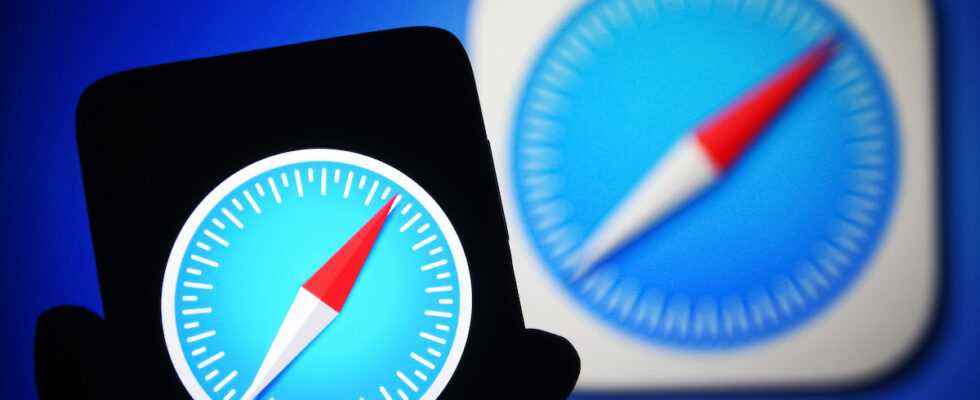It’s done: Apple’s Safari browser now has more than a billion users. Apple’s in-house browser thus joins that of its Google rival, Chrome, in the very exclusive club of browsers with more than a billion active users. According to data from VPN provider Atlas, Safari now has just over a billion users, or around 19% of all internet users. If the performance is to be welcomed, the Apple browser remains far behind Google Chrome and its 3.4 billion users.
The news, however, illustrates the gap that has now widened between Apple and Google’s browsers and their competitors. Chromium-based Microsoft Edge has just under 213 million users, while Mozilla Firefox has 178 million and Samsung Internet has 149 million. To make the difference, Safari relies in particular on Apple’s mobile operating system, iOS, which equips the American giant’s iPhones and other iPads. Most Safari users come from iOS as well. In January, Apple management had also estimated its base of devices running iOS and macOS at 1.8 billion.
However, whether iOS or macOS, Apple’s operating system for computers from the American giant, two platforms are equipped with Safari as the default browser. Apple’s 2021 installed base illustrates the split between the two. Last year, Apple had a combined installed base of 1.65 billion devices, including more than a billion iPhones alone.
The shadow of DMA
Until 2020, with the release of iOS 14, iOS users could not set Chrome or any other mobile browser as their default browser. Given the tendency of users to stick to apps installed by default, this gave Safari a definite edge in its bid to remain the most popular browser on iOS. While users can now set Chrome or Firefox as their default browser, Apple still requires third-party browser makers to use its WebKit browser engine on iOS.
Still, the DMA, the new European framework on competition in the digital market should largely change the situation for Apple, by throwing a damper on the progress of Safari. The new framework adopted by Brussels should indeed loosen the grip of the digital giants, by imposing new competitive rules on the application market, but also on operating systems, application stores, browsers and in-app payment.
With regard to the browser market, the final text of the DMA provides that browser vendors – such as Apple for Safari – will no longer be able to “use their position to require their dependent business users to use one of the the central platform […] in the context of the provision of services or products by these professional users”. What potentially casts a shadow on the future growth potential of Safari.
